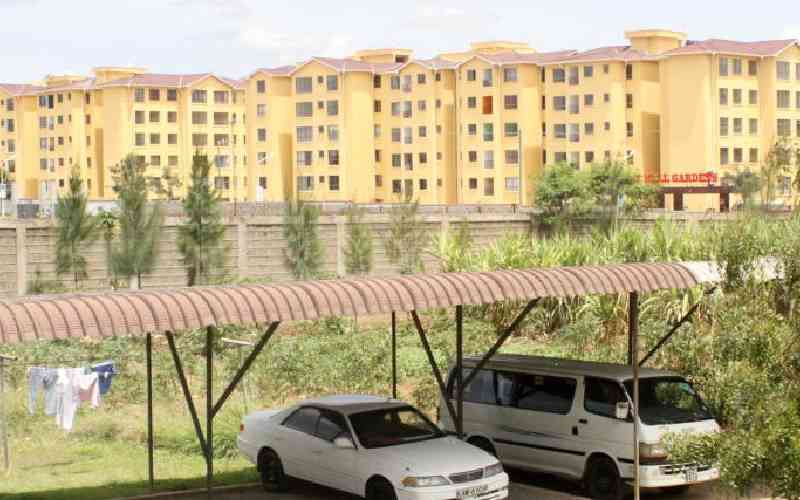
It is a hot Friday afternoon on the Eastern Bypass in Nairobi. John Munene, 21, listens to speakers seated under a dome, extolling the merits of a new project that is meant to change Kenya’s industrial sector.
Despite the presence of high-level government officials, his mind is far away from the official speeches that he can hardly comprehend. His gaze is fixed on the open ground – 200 acres in all – and what it will mean for him and other jobless youths from nearby Ruai.
On this day, Nairobi Governor Dr Evans Kidero, flanked by two cabinet secretaries, Adan Mohamed and Dan Kazungu, are breaking ground for the first private industrial park in Kenya and one of the largest in Africa.
The Sh12.5 billion Infinity Industrial Park,being developed by Abacus Group, has received positive reviews from local and foreign leaders, including Indian Prime Minister Narendra Mondi.
The project will feature manufacturing plants, wholesale outlets and go-downs. Included too will be social amenities such as shopping malls, community area, a hospital as well as fire and police stations.
The social amenities and prerequisite infrastructure will take up 75 acres and will be completed within the first 24 months.
Of the remaining land, another 100 acres will be subdivided into one- to three-acre pieces that will be snapped up by industrialists and other investors. Another 25 acres will go toward the construction of 150 sheds to be taken up by small- and medium-scale industries.
While everyone agrees that the value of land in Nairobi and surrounding areas has risen astronomically, thus raising the asking price for new homes, the use of such large tracts of land for industrial purposes presents a new frontier for the real estate sector.
“It is true that we could have set aside this land for the construction of residential houses. However, Kenya has a youth unemployment rate of between 1.5 million and two million. It is time we also looked at using land in a manner that will create jobs for these youths. With constant income, they will be in a position to own homes of their own,” says Ashok Shah, the project’s chairman and managing director.
This is the kind of news Munene was waiting for as he stood beside me during the interview like a sentry.
Shah speaks of the new “industrial revolution” based on his own experience in real estate development. His group is behind a number of prime developments spread across the country, including the Sky Mall in Parklands and the three-star hotel by the same name within the premises.
However, the closest he has come to developing such a park is a previous development of 51 warehouses on 11 acres in Baba Ndogo, Nairobi. Still, Shah says the current project has all the dynamics of a successful real estate project in an area that has been neglected by the big players in the industry.
“Look at the current government infrastructure projects around here. We have a bypass a few metres from here. We have the airport just 15 minutes away. Then there is the Standard Gauge Railway. An industrial park is better placed to make good use of such infrastructure, especially for the export of finished goods,” he says.
According to him, the current industries are scattered all over Nairobi, making it difficult for them to harness such infrastructure developments. Bringing them together, he says, will make it possible for them to minimise the use of embodied energy and thus lower the cost of doing business.
Stay informed. Subscribe to our newsletter
Shah says the model employed at Infinity Park will be the “plug and play” where investors set up businesses without worrying about necessary infrastructure. He added that demand for serviced industrial plots in Kenya is higher than what the project can provide.
Sweetening the deal for investors is the fact that Infinity Industrial Park’s purchase scheme offers close to 50 per cent appreciation of their capital investment in the course of two years.
According to documents seen by Home & Away, a small workshop with toilet facilities and an area of 6,300 square feet sells for Sh5,000 per square foot plus VAT. This translates to about Sh36 million to be paid up front. The investor then earns Sh30 per square foot upon signing the sale agreement up to the time of handing over the shed or Sh189,000 per month. Infinity also guarantees to buy back a shed after two years of a similar capital investment. With an industrial shed price appreciating to Sh7,500 per square foot upon completion, the investor will walk away with over Sh47 million.
According to real estate firm Hass Consult, such quick returns on investment are spurred by the rapid growth of such satellite regions where land prices rose by seven per cent compared to city suburbs where growth was recorded at 1.4 per cent in the third quarter of 2016.
For example, Juja and Ruiru, towns that lie just a few kilometres from Infinity Park, recorded the highest price increase at 14.5 and 11.2 per cent, respectively mainly due to current infrastructure upgrade.
“Land in the satellite towns attracts investors who wish to benefit from the high land capital appreciation in the long-term driven majorly by the ongoing infrastructural development,” said the report.
Investment firm Cytonn, in its weekly report, said demand for such emerging sectors in real estate is also driven by poor performance of other asset classes. It says real estate offers returns of up to 25 per cent, especially for “those who invest at development stage and rental yields of up to 12 per cent on commercial buildings built to let”.
Mairura Omwenga, the chair of the Planners Chapter of the Architectural Association of Kenya, says the project is an example of what can be achieved through advance planning.
Infinity Park, he says, has scored highly in its sustainable design where a worker has all the supporting amenities on a single site.
“It is not easy for a person to work at one point and have access to a hospital, a modern public transport hub, a police station, a mall and even buy food at subsidised rates. And do not forget that waste will also be managed on site rather than have those garbage trucks moving in and out. It is a thumbs-up from town planners,” says Omwenga.
Other green features include the planting of 15,000 trees, rainwater harvesting as well as the use of solar energy.
With such industrial parks making a grand entry into the Kenyan real estate market, things can only look up for Munene and his ilk who hope to cash in, at the very least, during the construction phase of such mega projects.
 The Standard Group Plc is a
multi-media organization with investments in media platforms spanning newspaper
print operations, television, radio broadcasting, digital and online services. The
Standard Group is recognized as a leading multi-media house in Kenya with a key
influence in matters of national and international interest.
The Standard Group Plc is a
multi-media organization with investments in media platforms spanning newspaper
print operations, television, radio broadcasting, digital and online services. The
Standard Group is recognized as a leading multi-media house in Kenya with a key
influence in matters of national and international interest.
 The Standard Group Plc is a
multi-media organization with investments in media platforms spanning newspaper
print operations, television, radio broadcasting, digital and online services. The
Standard Group is recognized as a leading multi-media house in Kenya with a key
influence in matters of national and international interest.
The Standard Group Plc is a
multi-media organization with investments in media platforms spanning newspaper
print operations, television, radio broadcasting, digital and online services. The
Standard Group is recognized as a leading multi-media house in Kenya with a key
influence in matters of national and international interest.










